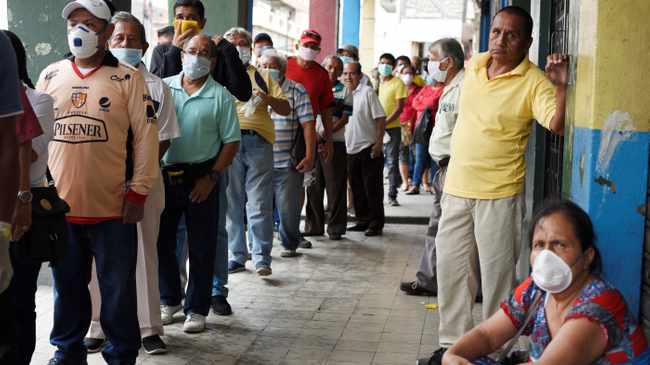Calls for Government to Make Relief Measures Permanent


Basic Income Grant could be a massive game changer which transforms South Africa’s social security system and could be a key contributor to lifting millions of people out of poverty.
JOHANNESBURG - Some NGO’s want the government to make the Covid-19 emergency relief measures permanent from October, especially the one that allows citizens aged 18-59 to access state assistance for the first time ever, to create a basic income grant.
The country had crossed a critical threshold in making income available to working-age people, so recognising that this group merited help in a country with its problems of poverty, high unemployment and inequality, according to a statement yesterday.
A recent webinar Social Protection in South Africa: Building back better post COVID-19, which was hosted by the DSI-NRF Centre of Excellence in Food Security, aimed to highlight the gaps in South Africa’s social protection system exposed by the pandemic. The issue is especially significant now as the end of the six-month emergency relief measures approaches.
The organisation’s national director Lynette Maart said the Black Sash was seeking 1 million signatures for its online petition calling on President Cyril Ramaphosa, along with Social Development Minister Lindiwe Zulu, her Finance counterpart Tito Mboweni and the National Treasury to permanently implement social assistance for this “missing middle group”.
This group of people are at the upper bound poverty line currently at R1 227 a month, she said.
“Research has shown up the huge gap in terms of support for this group, who have enjoyed access during the lockdown period to the Special Covid-19 Social Relief of Distress grant. Rather than ending it in October, we must work with that as a start – taking us forward to the ultimate goal of a universal Basic Income Grant,” she said.
Fellow panellist Isobel Frye, a director of the Studies in Poverty and Inequality Institute said a lack of political will was “a major stumbling block”.
Despite research proving South Africa could bear the cost, the social security system was still premised on the apartheid-era focus of mainly giving money to businesses and the employed, she said.
Stephen Devereux, the SA-UK Bilateral Research Chair in Social Protection for Food Security, said 18 to 59 year olds were falling through the cracks.
“If you don’t have a job, you don’t have social security. There is a huge cohort of people who have no protections,” he said.
Wits University School of governance Professor Alex van den Heever said while the pandemic had plunged South Africa into a fiscal crisis, this did not presuppose a long-term economic crisis.
“South Africa will bounce back. The country has taken a huge hit because it shut down both the supply and demand side, meaning it couldn’t raise taxes to fund its deficit. It has therefore had to go to capital markets to raise that money,” he said.
Hence, the state could be expected to resist anything that inflated that deficit.
However, building a case for making these grants permanent, Van den Heever suggested that these programmes made a positive economic impact, which translated into “positive return of higher tax revenue down the line”.
Professor Van der Heever said South Africa was not in a disastrous position, with the economy already rallying in sectors that were reopening. As such, these social security programmes should not be allowed “to be pulled back”, he said.
Devereux said “there are all kinds of benefits from benefits: It’s the economic benefit of the multiplier effect. If you inject money into communities, people buy goods and services, and that in turn creates employment and income for other people.”
By: Edward West
Photo: IOL
Source: IOL Business Report